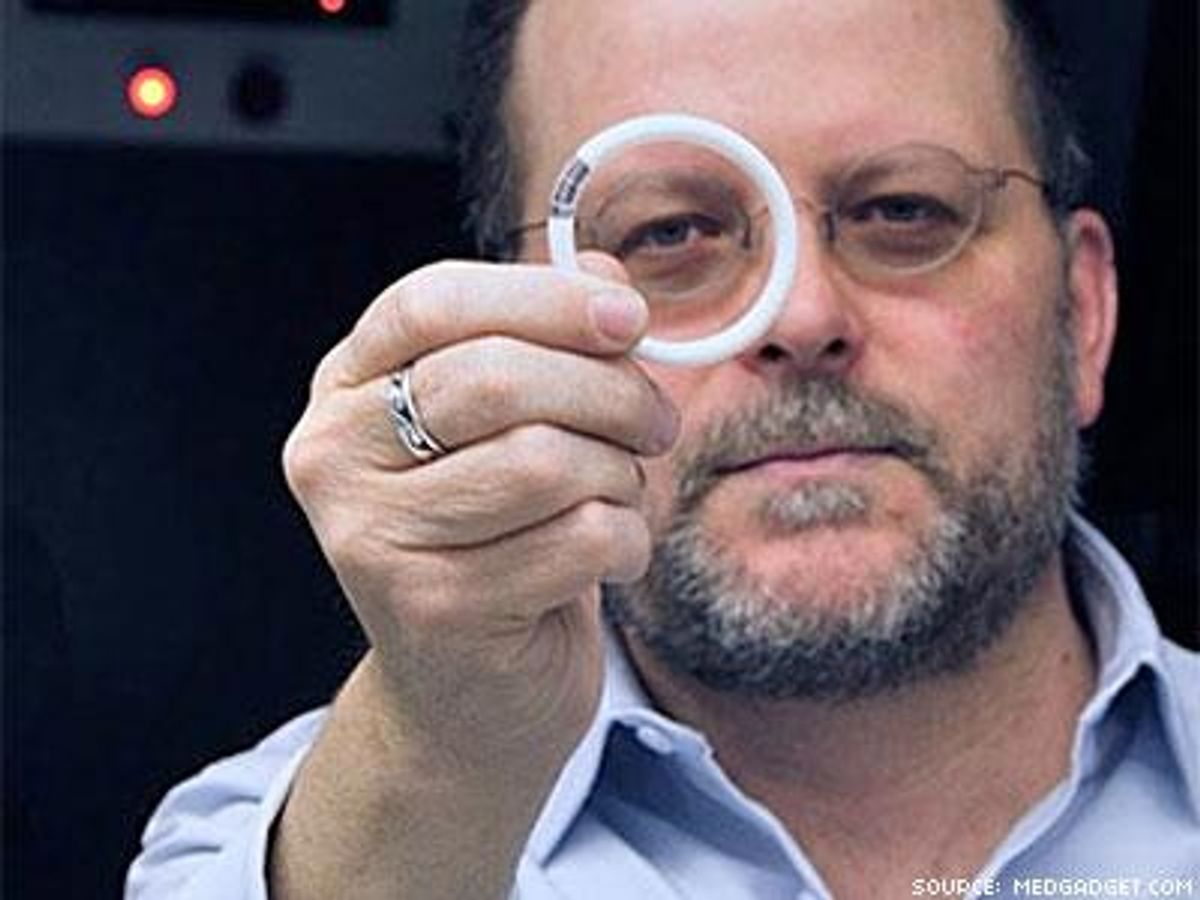At a conference last fall in Chicago, doctors and scientists were wowed by a new product aimed at preventing HIV transmission: an intravaginal ring filled the antiretroviral drug tenofovir. Almost a year later, the evolution of the possible life-saving device has finally been succesfully tested and evaluated on animals.
Scientists and doctors from the University of Utah and Northwestern University have developed the intravaginal ring, and are now more confident it can prevent HIV infection in women. The small device, when inserted for about a month, successfully delivered a precise amount of the anti-retroviral medicine, tenofovir disoproxil fumarate, to monkeys.
Topical prevention of HIV is designed to interrupt sexual transmission at the genital mucosa, and past attempts at preventing transmission in women using vaginal gels have yielded disappointing results. In contrast, the ring has a unique polymer construction, which allows it to swell in the presence of fluid, delivering up to 1,000 times more of the drug than current intravaginal devices.
"After 10 years of work, we have created an intravaginal ring that can prevent against multiple HIV exposures over an extended period of time, with consistent prevention levels throughout the menstrual cycle," said Patrick F. Kiser Ph.D. who authored the study.
Unlike current treatments typically requiring daily ingestion of pills or topical gels needing to be applied prior to sex, the ring offers a sustained delivery method without the daily inconvenience.
“The ring protected pigtailed macaques from weekly vaginal simian–human immunodeficiency virus challenges for 4 months,” said Kiser. “The sterilizing performance of this drug delivery system supports the concept that an intra-vaginal ring delivering TDF could be an effective tool for prevention of HIV sexual transmission in women.”
The device will soon be evaluated in human trials, where 60 women will undergo testing.
"Our investigational new drug application for a trial on the TDF-IVR is being conducted by Betsy Herold and Marla Keller at the Albert Einstein College of Medicine and has been approved by the FDA," Kiser told HIV Plus. However, he added, "Moving the ring to the market will take several years."




















































































